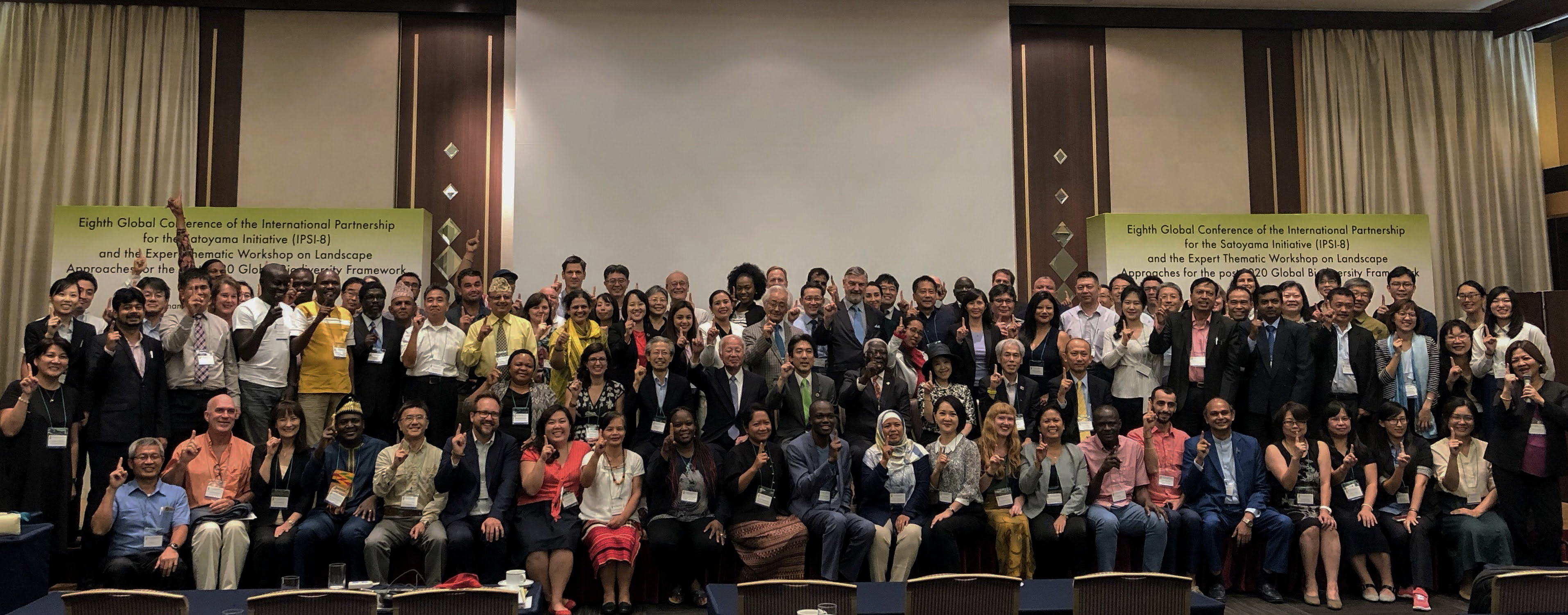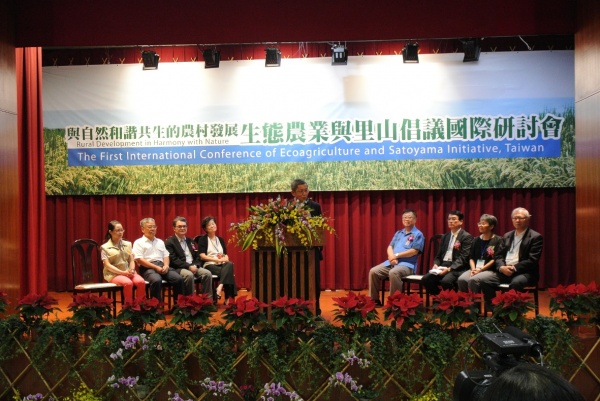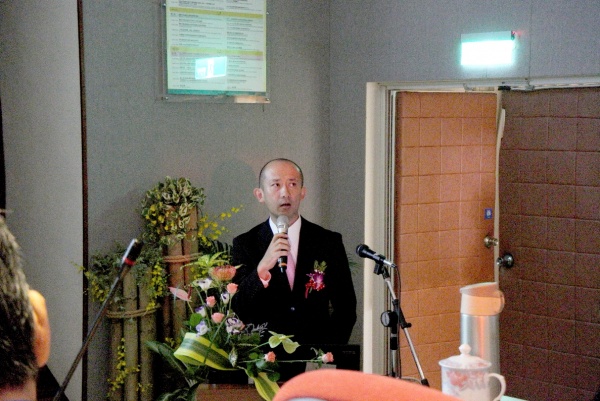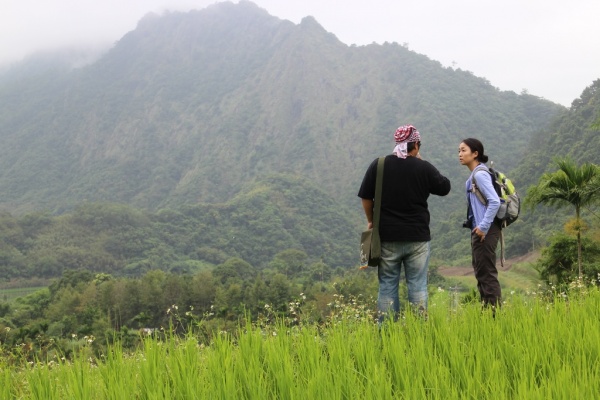The First International Conference of Ecoagriculture and Satoyama Initiative, Taiwan was held on September 23, 2015 in Jian Township of Hualien County, Taiwan. IPSI SWAN International and National Dong-Hwa University were among organizers and collaborators of the conference together with Hualien District Agricultural Research and Extension Station (HDARES), Taiwan’s Council of Agriculture, Forestry Bureau and Rural development foundation. The conference aimed to share experience and knowledge which is relevant to the Satoyama Initiative and Ecoagriculture in Taiwan as well as learning the concept and practice regarding such concept and program have been implemented globally.
Wataru Suzuki and Kaoru Ichikawa from the IPSI Secretariat were invited to present the basic concept of the Satoyama Initiative, the formation and development of IPSI, and the Indicators of Resilience in SEPLS. Prof. Josef Settele from Helmholtz Center for Environmental Research in Germany, which is also an IPSI member organization, Dr. Kong Luen Heong (Former senior scientist of IRRI), and Prof. Steve Wratten (Lincoln Univ., New Zealand) were also invited to give presentations on ecologically friendly farming. Very intensive and constructive discussions took place on how better to incorporate the concept of the Satoyama Initiative and “eco-farming” to Taiwan, where SEPLS and traditional practice and knowledge is still vibrant. It was also mentioned that there is a strong hope to establish a national network for Taiwan for the Satoyama Initiative. If this comes to be realized, it will be the second national network following Japan, where the initiative was first proposed.
The speakers and participants were provided with wide variety of opportunities to learn SEPLS practice in the Eastern coast of Taiwan. The first site was in Taroko National Park, the world famous National Park in Taiwan for the amazing Rocky gorge. Xibao community practice organic farming. The major crop is cabbage and it is successful so far. It has been concerned that the use of agro-chemicals in the upstream agricultural community give significant impact to the ecosystems to the national park through water quality degradation. The park management authority and the Xibao community has been established successful collaboration through eco-agriculture.
HDARES and Forest Bureau of Taiwan have been supporting local tribes which maintain their sustainable production activities as well as their own culture and languages. The first site was Xinshe Tribe community. The beautiful terrace paddy was once abandoned due to the diminished community, but it is gradually coming back by the effort of descendants of the tribe re-settled from Urban cities. The tribe introduced a technology that is new to them, planting French marigold surrounding the paddies. The flowers provide nectar and pollens for natural predators of rice-feeding pests so that any chemical substances are not needed to control pests. Tribe members have demonstrated traditional rituals. Traditional food and beverage was offered including lemon like flavored drink which is made using locally available wild herb.
The next site was Fuxing tribe, and they offer eco-tourism and the guide provides not only natural aspect but traditional knowledge and use of the landscapes. The participants enjoyed local food and also songs of the community members.
Fusin Eco Farm is a experimental farm established for eco-farming. The six acres land is leased by the Taiwan Sugar Corporation, and it was managed in collaboration with the National Dong Hwa University, HDARES and Forest Bureau of Taiwan. One of the aims of the farm is to seek means of resolving conflicts between farmers and animals, including findings natural predators of the pests. The wetlands in the farmland function for irrigation and water bird’s habitat.
The last destination was Fonnan Village where vast rice terrace fields have been maintained and farmers produce rice in chemical free environment. The community maintains traditional canal system and restored abandoned local school as environment education station for kids. National Dong Hwa University is currently applying the Resilience Indicators for SEPLS in this community and has conducted series of workshops for core members of the project.
Throughout the excursion and conference, it was so impressive that the concept of the Satoyama Initiative has been incorporated to various levels of projects in the east coast of Taiwan in close collaborations with National Agencies, research and educational institutions and local communities. These activities in Taiwan should be able to provide valuable lessons for the ISPI members working on SEPLS.






